DPS: Data Provenance Standards
Already a member?
Access the DPS community workspace here.
Advancing data transparency, accountability, and trust by solidifying the data provenance standards into a universal data governance norm.
The DPS TC will focus on implementing consistent tagging and metadata frameworks across data ecosystems—down to database, table, and column levels—to ensure comprehensive data lineage tracking and support responsible data usage, privacy, and compliance across all industries.
Transparency into data provenance is critical for business value. Today, many organizations are not making progress on AI adoption because they cannot answer basic data provenance questions—on rights, restrictions, and sourcing. Lack of provenance already results in high costs: overpaying for low quality data and investing heavily in data cleanup. Visibility into provenance can not only increase efficiency, accuracy, and quality assurance but also lead to more informed decision making, speeding up innovation.
The TC will consider trust in data, ensuring that provenance, lineage, pedigree and ultimately transparency support trust-building efforts in AI and data ecosystems. By aligning with existing trust models and industry best practices, the TC will focus on provenance as a cornerstone of trust.
By establishing these standards, the TC will enhance data lifecycle management and reinforce trust in AI-driven and data-dependent applications. The TC will also explore opportunities for integrating automated tools to generate and validate metadata, ensuring scalability and ease of adoption while maintaining trust and compliance.
The TC’s goal is to create actionable standards that deliver measurable business value, such as enhanced operational efficiency and trust in AI systems, encouraging adoption by demonstrating clear ROI for both data providers and consumers.

DPS Sponsors

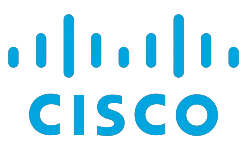
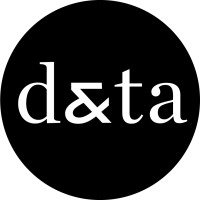
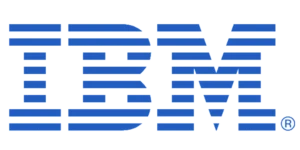
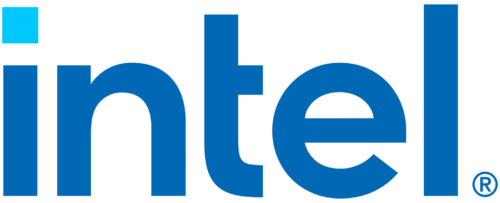
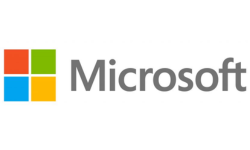

TC Leadership
Chairs:
Lisa Bobbiyt, Cisco
Bryan Bortnick, IBM
Foris Psallidas, Microsoft
Secretary:
Kristina Podnar, Data & Trust Alliance
Staff Contact
Kelly Cullinane, OASIS Open
kelly.cullinane@oasis-open.org

“For AI to create value for business and society, the data that trains and feeds models must be trustworthy. Launching the Data Provenance Standard Technical Committee marks a milestone in fostering greater transparency and trust of AI-driven data. We look forward to bringing the TC’s expertise to bear to not only refine these standards but also bridge the gap between standards and implementation, as we drive towards industry-wide adoption.”
Saira Jesani, Executive Director, Data & Trust Alliance

“I applaud the OASIS community for its forward-thinking creation of the Data Provenance Standards TC. By creating standardized descriptors at the point of data creation, we are forging a path that empowers organizations to safeguard data integrity, security, and privacy throughout its entire lifecycle. This is essential for both AI-driven and traditional applications. These standards will not only enhance transparency and accountability, but also lay the foundation for robust, cross-industry data governance.”
Omar Santos, Distinguished Engineer, Cisco

“IBM is proud to build on its partnership with the Data & Trust Alliance to become a founding member of the OASIS Data Provenance Standards Technical Committee. As a contributor to the Data & Trust Alliance’s Data Provenance Standards, we are pleased that the DPS TC will evolve the critical work of advancing data transparency started by the Data & Trust Alliance. We look forward to helping organizations accelerate the business impact of AI through trust in our work with the DPS TC.”
Christina Montgomery, Vice President and Chief Privacy & Trust Officer, IBM

“Security and Trust remain at the top of mind while Microsoft executes its mission of empowerment. We promote and demand this ethos while developing operationally efficient and trustworthy AI systems. To do this successfully, we believe that full transparency into the data used including where it comes from, how it’s created, and whether it can be used legally is of extreme importance. As a founding member of the Data Provenance Standard Technical Committee (DPS TC), Microsoft will partner with similarly committed organizations towards creating industry standards for ensuring that AI systems are built with transparency, accountability, and trust through establishing data provenance standards as a foundation for improved data governance. Through membership and partnership in the DPS TC, Microsoft continues its commitment to empower every person and every organization on the planet to do more…securely.”
Raghu Ramakrishnan, CTO for DATA, Technical Fellow, R&D Azure Data, Microsoft

“Red Hat is proud to join the OASIS Data Provenance Standard Technical Committee. With AI rapidly evolving, it’s crucial we address the provenance challenge, together as a community, to help maintain data integrity and user trust. Red Hat is eager to collaborate on keeping security and compliance measures at the forefront of AI development, and we look forward to how this initiative will help unify our efforts toward an open and trusted AI ecosystem.”
Vincent Danen, VP, Product Security, Red Hat
Frequently Asked Questions
The TC will develop cross-industry standards for data provenance, pedigree, lineage, and metadata tagging frameworks, supporting database, table, and column-level tags, as well as metadata for graph databases, NoSQL databases, and data exchanged via APIs or other non-database structures.
Trust in data starts with transparency into provenance—assessing where data comes from, how it’s created, and whether it can be used legally. Yet, the ecosystem needs a common language to provide that transparency. Establishing shared provenance standards is foundational to fostering trust in data and AI-driven systems.
Enable data suppliers to provide standardized, consistent metadata on data lineage and provenance.
Support data acquirers in managing compliance and mitigating risks associated with data privacy, security, and intellectual property rights.
Help end-users by ensuring transparency in data handling and increasing trust in digital services.
The Data Provenance Standards (DPS) differ from the work of C2PA and OpenSSF in several key ways. While C2PA focuses on image provenance, the DPS are designed to apply to data provenance across all industries. The DPS provides a comprehensive framework for tracking the origin and lifecycle of data, including how it is collected and how it may be used.
OpenSSF’s work on AIBOM, while complementary, is distinct in its focus. OpenSSF primarily addresses security in the software supply chain, while the DPS establish cross-industry criteria for documenting the origin and usage of data. This level of transparency is crucial for ensuring the accuracy, reliability, and trustworthiness of data in business contexts.
The standards will be relevant to professionals across various domains.
The DPS TC is open to various stakeholders: AI ethics specialists, data governance and compliance professionals, IT managers, and others.
OASIS welcomes interested organizations to join and contribute to the development of cross-industry data provenance standards. Organizations can participate by becoming OASIS members.
Participation in the DPS TC does not require a significant time commitment. Members typically meet once a month for an hour and collaborate extensively via email and shared documents. If your availability is limited and you prefer not to affect quorum, you have the option to join as an Observer. Observers can stay informed and contribute without the obligation of full participation, though OASIS membership is still required. View more info on committee participation [here].
You can find a comprehensive list of frequently asked questions about the Data Provenance Standard (DPS) on the D&TA website.
The DPS TC’s mailing list archive, used by members to conduct Committee work, is available here. TC membership is required to post to this list. TC members are automatically subscribed.

New Members Welcome
Whether you want to actively contribute in decision-making or just observe progress from the inside, you will need to be an OASIS member.
If your employer is already on our current member list, submit this request form to be added to the TC Roster. If not, find out how to join OASIS.
Non-members may monitor the mailing list archives online, view approved documents, and provide feedback to our comments list. Contact Us for more information.


